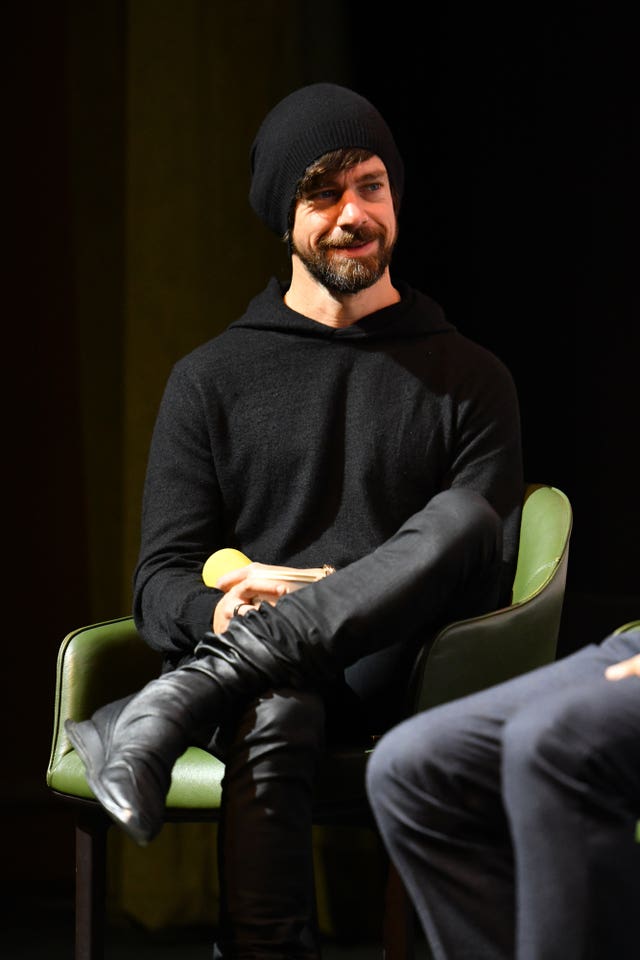
Ian Payne 4am - 7am
29 November 2021, 19:14

The social media platform’s co-founder has confirmed his resignation from the company.
Jack Dorsey has announced his resignation as chief executive of Twitter, the social media platform he co-founded in 2006.
It ends the tech entrepreneur’s second stint at the company, which has grown to more than 350 million active monthly users.
The platform was first created as a prototype in 2006 by Dorsey, Noah Glass, Biz Stone and Evan Williams – all then employees at podcasting firm Odeo, who were said to have been looking for a new direction for the company.
On March 21, 2006, Dorsey sent the first public tweet as the group began testing the platform – a message that read “just setting up my twttr”.
The company officially launched as Twttr in July that year before changing to Twitter shortly after.
In 2007, having started to quickly gain users, Twitter was spun off as its own start-up, Dorsey was named chief executive, and the company secured a first round of major investment funding.
But as further investment came alongside growing public interest, there were reportedly questions raised – including by the board – over Dorsey’s ability to lead the company, following a number of issues including around the site repeatedly crashing.

By late 2008 he was pushed out as chief executive and replaced by fellow co-founder Williams, but remained on the board as chairman.
Away from the day-to-day running of Twitter, Dorsey went on to create mobile payment firm Square in 2009, after an old friend from his home town of St Louis found he was unable to sell some glass taps for about two thousand dollars because he had no way of accepting credit cards.
They decide to create a mobile credit card reader that could be plugged into the headphone jack of a smartphone – which would become Square’s first product.
Then, in 2011, Dorsey made a full return to Twitter, shortly after his replacement Evan Williams was ousted, with Dorsey coming in as executive chairman with a focus on product development, as then chief operating officer Dick Costolo became chief executive.
When Twitter went public in November 2013, Dorsey became a billionaire.
But by 2015 the share price was slumping and the platform had been facing stuttering growth.
It led to Costolo resigning as chief executive and Dorsey agreeing to step back in as interim chief executive, before making the role permanent just three months later.
not sure anyone has heard but,
I resigned from Twitter pic.twitter.com/G5tUkSSxkl
— jack⚡️ (@jack) November 29, 2021
In the years that followed a number of major changes and new features were added to the site, most notably the doubling of the character limit of a tweet from 140 to 280, in November 2017.
The platform’s blue tick verification system was also paused in 2018, with Dorsey himself admitting publicly at the time it was “broken”, before being reintroduced earlier this year with a new process for verifying prominent accounts.
Last year, Dorsey also came under pressure from Paul Singer, the billionaire founder of hedge fund Elliott – a Twitter investor – to step down again as the company’s chief executive.
Elliott and Mr Singer said that Mr Dorsey should not be chief executive of both Square and Twitter, before reaching a deal with the technology firm over the issue.
Most recently, Dorsey and Twitter became key components in the fallout from the 2020 US presidential election when, having added warning labels to tweets from Donald Trump, and his supporters falsely claiming election fraud, Twitter became one of the first platforms to ban the then president for inciting violence and the January 6 riots at the beginning of this year.
A number of other platforms would follow suit.
He has now confirmed he will fully leave Twitter by “May-ish” next year, following a transition period with the new chief executive, Parag Agrawal.